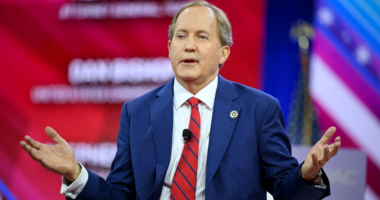Share this @internewscast.com
For a long time, I’ve argued that “banks get it all in the end.” I was referring to the influence banks wield at various levels of government, a power that could have put an end to cryptocurrency if the Democrats won the 2024 election. Thankfully, it seems we may have sidestepped that potential issue.
There’s a contentious debate happening on Capitol Hill that could determine the extent of banks’ control over individuals. The GENIUS Act creates a regulatory framework for stablecoin issuers, explicitly barring them from providing yields to holders. It ensures stablecoins serve mainly as payment tools, backed one-for-one by secure assets like U.S. dollars. Conversely, the CLARITY Act, which is still awaiting approval, centers on a broader market structure for digital assets, allowing exchanges and infrastructure providers to offer yields from staking activities. This approach faces strong opposition from banks, which claim it jeopardizes financial stability and removes $6 trillion from custody. However, a deeper look suggests banks are mainly defending their vested interests, while approving the CLARITY Act as it stands would create a fairer environment for consumers, promoting competition and innovation in the crypto industry.
Banks’ Self-Interest in Opposing Staking Yields
Banks have been quite outspoken in their opposition to the CLARITY Act’s staking yield provisions, often citing concerns about risks to the banking system and consumer safety. Trade organizations such as the American Bankers Association (ABA) and the Conference of State Bank Supervisors (CSBS) have emphasized how stablecoins and related crypto infrastructure could bypass traditional banking, drawing deposits away from banks towards digital alternatives. They argue that allowing non-bank entities access to Federal Reserve services or permitting them to offer yields could lead to unfair competition and introduce uncertainties into the financial system. ROTFLMAO, that’s precisely the idea!! But it’s far from unfair. Banks should indeed compete with us, but not in a way that’s unfair to us.
This resistance seems more about protecting banks’ profitable business models than addressing authentic systemic issues. With the GENIUS Act, banks enjoy considerable advantages when it comes to issuing stablecoins. As regulated entities and issuers, they can hold reserves and keep the interest earned on those assets—interest that, in a typical bank account, might otherwise be given back to depositors. This sets up an inherent profit mechanism for banks, effectively allowing them to capitalize on stablecoin reserves without sharing yields with holders, as restricted by the Act.
Additionally, banks could benefit from a new revenue stream through custody services. The GENIUS Act requires stablecoin issuers to maintain segregated reserves, typically held by banks, which can charge fees for these custodial functions. With estimates predicting the stablecoin market might grow to $3 trillion by 2030 in a base case scenario (and potentially $3.7 trillion in a more optimistic scenario), this custody business offers a huge opportunity to balance any deposit losses. Instead of being disadvantaged, banks are poised to flourish in this ecosystem, transforming stablecoins from a threat into an asset.
The Fractional Reserve Advantage: Banks’ Hidden Edge
Central to banks’ profitability is the fractional reserve system, permitting them to lend out part of deposits while keeping only a fraction in reserve. This allows banks to generate interest rate spreads—earning from the difference between what they pay depositors and what they earn from loans. In contrast, stablecoins governed by the GENIUS Act must be fully backed, removing the fractional reserve model for issuers and ensuring one-to-one redemption.
Consumers in the traditional banking system have little control over this process. During crises like the 2008 financial meltdown, depositors faced runs on banks, frozen assets, and bailouts, with no direct way to unwind their positions quickly. Banks’ opposition to the CLARITY Act ignores how crypto’s transparency and technology address these vulnerabilities. In the crypto world, users can verify collateralization on-chain and redeem or “unwind” their holdings with a single click—whether it’s exiting a stablecoin or unstaking assets. This user empowerment mitigates systemic risks by allowing rapid, individual responses to instability, unlike the opaque, centralized control of fractional reserves that went to hell in 2008 and again in 2022.
A Fair Playing Field: Empowering Consumers Through Competition
Passing the CLARITY Act without amendments would give non-bank exchanges and providers a competitive edge in attracting yield-seeking customers through staking—a feature banks can’t easily replicate due to regulatory constraints. But this isn’t unfair; it’s corrective. Banks already dominate under the GENIUS Act with their reserve interest retention and custody fees, not to mention their fractional reserve profits. Allowing non-banks to offer staking yields creates balance, driving innovation and giving consumers more choices.
For instance, a consumer frustrated with near-zero yields on bank deposits could turn to a crypto exchange for staking rewards, all while benefiting from the stability of regulated infrastructure that they can unwind in a single click if the proverbial s*&t hits the fan.
This competition could force banks to improve their offerings, ultimately benefiting everyone. Projections show the stablecoin market exploding to trillions by 2030, fueled by integration into traditional finance—growth that banks can participate in through custody and issuance.
Collateralized mortgage obligations, (“CMO”) and credit default swaps (“CDS”) are a great ideas. The way they were originated, traded, cleared and settled made them weapons of mass destruction which led to the bailouts in 2008. Under GENIUS and CLARITY, tokenization of CMOs will include downside protection that includes baked in CDS in one security which prevents the destruction of value and allow holders to unwind them in seconds in a single click instead of waiting for a centralized 14 year bankruptcy adjudication.
In the end, banks’ “violent” opposition to the CLARITY Act’s staking provisions reeks of protectionism. By passing the Act as is, lawmakers can foster a truly fair ecosystem where consumers—not just incumbents—reap the rewards of digital innovation. The future of finance isn’t about shielding banks; it’s about empowering users with control, transparency, and choice.

















